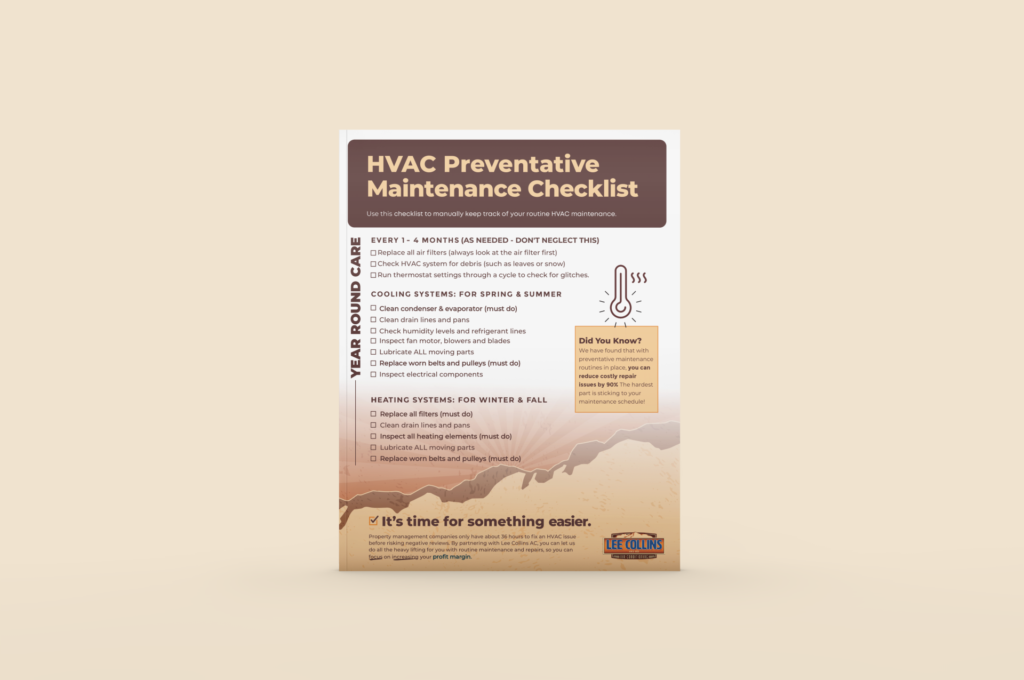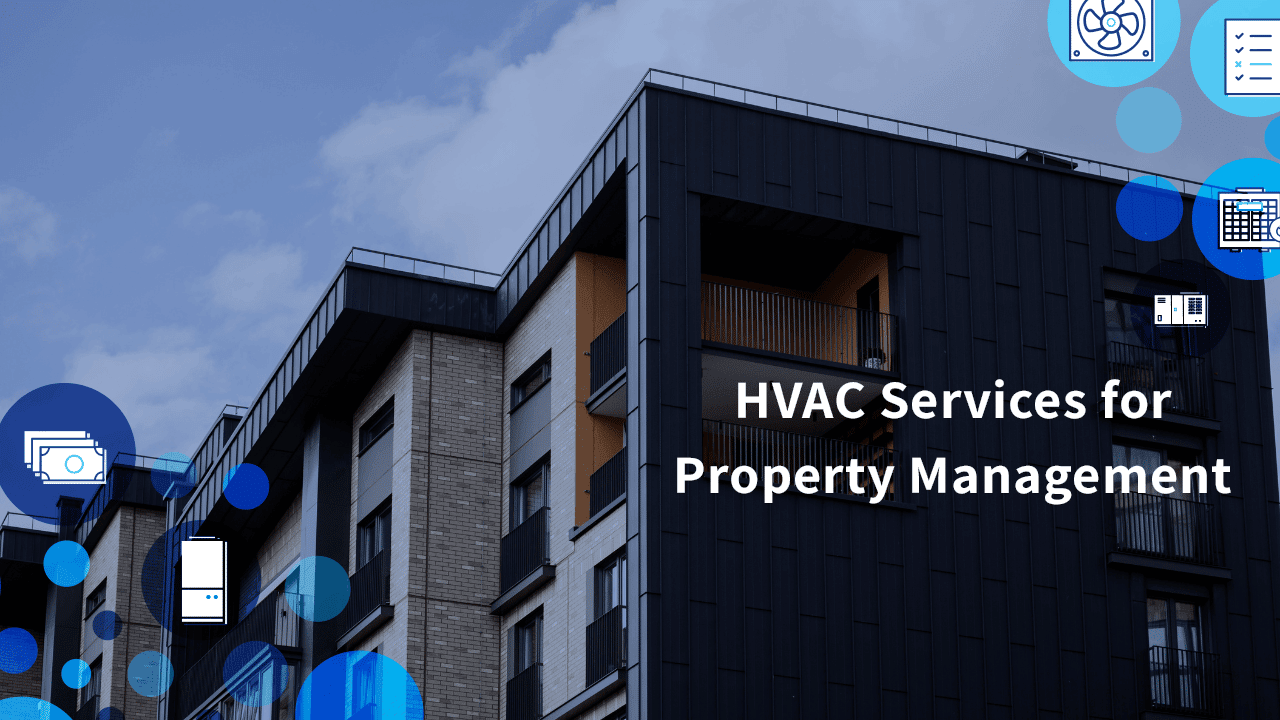Mastering Property Management HVAC Vendors: A Comprehensive Guide
In today's competitive real estate market, property management HVAC vendors play a crucial role in maintaining the comfort and efficiency of residential and commercial spaces. Whether you're a property manager or an owner, understanding the nuances of HVAC systems and partnering with reliable vendors is essential for long-term success. This article will delve deep into the world of HVAC vendors in property management, offering actionable insights and expert advice to help you make informed decisions.
Managing properties involves a wide range of responsibilities, from tenant satisfaction to operational efficiency. One of the critical aspects of property management is ensuring the proper functioning of HVAC systems. A well-maintained HVAC system not only enhances indoor air quality but also reduces energy costs, contributing to a more sustainable environment.
This guide will explore everything you need to know about property management HVAC vendors. From identifying the right vendor to maximizing the benefits of HVAC systems, we'll provide you with practical tips and strategies. Let's dive in and discover how HVAC vendors can transform your property management operations.
Read also:Frigid Dawn Armor In New World Ultimate Guide To Mastering The Best Gear
Table of Contents
- Understanding HVAC Systems in Property Management
- The Importance of HVAC Vendors in Property Management
- How to Choose the Right Property Management HVAC Vendor
- Benefits of Partnering with HVAC Vendors
- Common Challenges in HVAC Management
- Effective Solutions for HVAC Challenges
- Understanding HVAC Vendor Costs
- Best Practices for HVAC Maintenance
- Emerging Technologies in HVAC Management
- The Future of Property Management HVAC Vendors
Understanding HVAC Systems in Property Management
Heating, Ventilation, and Air Conditioning (HVAC) systems are integral to property management. These systems regulate indoor temperature, humidity levels, and air quality, creating a comfortable environment for tenants and visitors alike. In property management, HVAC systems are not just about comfort; they are also vital for energy efficiency and cost savings.
For property managers, understanding the basics of HVAC systems is crucial. This includes knowing the different types of HVAC systems, their components, and how they function. A well-maintained HVAC system can significantly reduce operational costs and improve tenant satisfaction. Moreover, energy-efficient HVAC systems contribute to a greener environment, aligning with the growing trend of sustainable property management.
Types of HVAC Systems
- Split Systems: Common in residential properties, these systems have indoor and outdoor components.
- Hybrid Systems: Combine traditional HVAC systems with renewable energy sources like solar power.
- Variable Refrigerant Flow (VRF) Systems: Ideal for large commercial spaces, offering precise temperature control.
The Importance of HVAC Vendors in Property Management
Property management HVAC vendors are essential partners in maintaining and optimizing HVAC systems. These vendors offer a range of services, from installation and maintenance to repairs and upgrades. By partnering with a reliable HVAC vendor, property managers can ensure the smooth operation of HVAC systems, reducing downtime and minimizing operational disruptions.
Moreover, HVAC vendors bring expertise and specialized knowledge to the table. They stay updated with the latest technologies and industry standards, ensuring that property managers have access to the most efficient and effective HVAC solutions. This partnership is particularly important in addressing the unique challenges faced by property managers, such as fluctuating energy costs and increasing tenant expectations.
Key Services Provided by HVAC Vendors
- Installation of new HVAC systems
- Regular maintenance and inspections
- Emergency repairs and troubleshooting
- Energy audits and efficiency assessments
How to Choose the Right Property Management HVAC Vendor
Selecting the right HVAC vendor is a critical decision for property managers. With numerous vendors in the market, it's essential to evaluate their capabilities and reputation before making a choice. Consider the following factors when choosing an HVAC vendor:
Factors to Consider
- Experience: Look for vendors with a proven track record in property management HVAC services.
- Reputation: Check online reviews and testimonials from previous clients to gauge their reliability.
- Certifications: Ensure the vendor holds relevant industry certifications, such as NATE (North American Technician Excellence).
- Response Time: A reliable vendor should offer prompt and efficient service, especially in emergencies.
Benefits of Partnering with HVAC Vendors
Partnering with property management HVAC vendors offers numerous benefits. From cost savings to improved tenant satisfaction, the advantages are significant. Let's explore some of the key benefits:
Read also:Discover The Vibrant Charm Of Usa San Antonio A Hidden Gem Worth Exploring
1. Cost Savings
Regular maintenance by a professional HVAC vendor can extend the lifespan of HVAC systems, reducing the need for costly replacements. Additionally, energy-efficient systems can significantly lower utility bills, providing long-term financial benefits.
2. Enhanced Tenant Satisfaction
A well-maintained HVAC system ensures consistent indoor comfort, improving tenant satisfaction and reducing complaints. Happy tenants are more likely to renew leases, contributing to the property's profitability.
Common Challenges in HVAC Management
Despite their importance, HVAC systems can present various challenges to property managers. Understanding these challenges is the first step in addressing them effectively. Some common challenges include:
1. Energy Inefficiency
Outdated or poorly maintained HVAC systems can lead to energy wastage, increasing operational costs. Regular maintenance and upgrades are essential to ensure optimal energy efficiency.
2. Equipment Failure
Unexpected breakdowns can disrupt property operations and lead to tenant dissatisfaction. Partnering with a reliable HVAC vendor can minimize the risk of equipment failure through proactive maintenance.
Effective Solutions for HVAC Challenges
Addressing HVAC challenges requires a strategic approach. Here are some effective solutions to common HVAC management issues:
1. Implement Preventive Maintenance
Regular inspections and maintenance can identify potential issues before they escalate into major problems. This proactive approach not only extends the lifespan of HVAC systems but also ensures their optimal performance.
2. Upgrade to Energy-Efficient Systems
Investing in energy-efficient HVAC systems can significantly reduce energy consumption and operational costs. Modern systems often come with smart features that allow for better control and monitoring.
Understanding HVAC Vendor Costs
The cost of HVAC vendor services can vary depending on several factors, including the scope of services, system size, and vendor reputation. Property managers should have a clear understanding of these costs to budget effectively. Some common cost components include:
1. Installation Costs
The cost of installing a new HVAC system depends on factors such as system type, size, and brand. On average, installation costs can range from $2,000 to $10,000.
2. Maintenance Costs
Regular maintenance contracts typically cost between $100 and $300 per visit, depending on the vendor and service package. These contracts often include routine inspections, filter replacements, and minor repairs.
Best Practices for HVAC Maintenance
Maintaining HVAC systems requires a combination of regular inspections, timely repairs, and proactive measures. Here are some best practices to ensure the longevity and efficiency of your HVAC systems:
1. Schedule Regular Inspections
Conduct routine inspections at least twice a year to identify potential issues early. This proactive approach can prevent costly repairs and extend the system's lifespan.
2. Keep Air Filters Clean
Clean or replace air filters every 1-3 months to ensure optimal airflow and prevent dust buildup. Dirty filters can reduce system efficiency and increase energy consumption.
Emerging Technologies in HVAC Management
Advancements in technology are revolutionizing the HVAC industry, offering innovative solutions for property managers. Smart HVAC systems, IoT integration, and energy management software are just a few examples of emerging technologies that can enhance HVAC management. These technologies provide real-time monitoring, remote control, and data analytics, enabling property managers to make informed decisions.
1. Smart HVAC Systems
Smart HVAC systems use sensors and algorithms to optimize temperature and airflow based on occupancy and usage patterns. This results in improved energy efficiency and tenant comfort.
The Future of Property Management HVAC Vendors
The future of property management HVAC vendors looks promising, with advancements in technology and growing emphasis on sustainability. As energy efficiency becomes a priority, HVAC vendors will play an increasingly important role in helping property managers meet these goals. By staying updated with the latest trends and technologies, vendors can offer innovative solutions that cater to the evolving needs of the property management industry.
1. Focus on Sustainability
With the rise of green building standards, HVAC vendors are increasingly focusing on sustainable solutions. This includes using eco-friendly materials, reducing energy consumption, and minimizing environmental impact.
Conclusion
In conclusion, property management HVAC vendors are indispensable partners in ensuring the smooth operation and efficiency of HVAC systems. From choosing the right vendor to implementing best practices for maintenance, this guide has provided actionable insights to help you make informed decisions. By partnering with a reliable HVAC vendor, you can enhance tenant satisfaction, reduce operational costs, and contribute to a more sustainable environment.
We invite you to share your thoughts and experiences in the comments section below. Additionally, feel free to explore other articles on our website for more valuable insights into property management. Together, let's build a smarter, greener future for real estate.
Data Sources:
- U.S. Department of Energy
- National Institute of Building Sciences
- ASHRAE (American Society of Heating, Refrigerating and Air-Conditioning Engineers)
Article Recommendations


